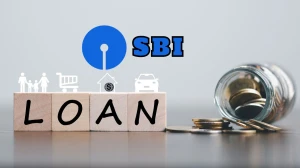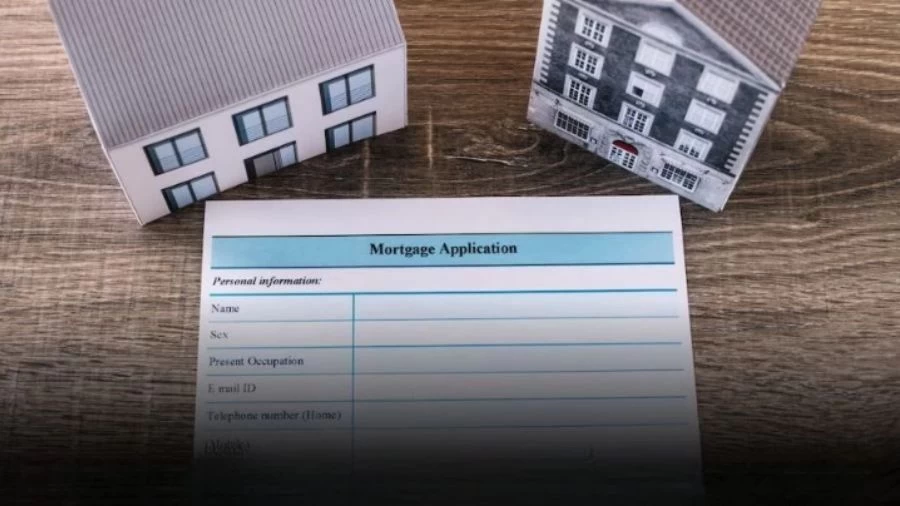
How to Get Preapproved for a Mortgage? What is a Mortgage Preapproval?
To get pre-approved for a mortgage, contact a reputable lender, provide the necessary financial documents, and undergo a credit check to determine the loan amount and loan types you qualify for.
by Kowsalya
Updated Jan 11, 2024
On This Page
What is a Mortgage Preapproval?
A mortgage preapproval is a crucial step in the home buying process that reveals how much a lender is willing to lend you and what types of loans you qualify for based on your current financial situation. To obtain a preapproval, you need to provide documentation, including credit reports, employment history, income, and other financial details, which undergo a thorough review by the lender.
This process typically involves a hard credit check, impacting your credit score, unlike the initial prequalification. A preapproval letter demonstrates your seriousness as a buyer and can make your purchase offers more competitive, increasing your chances of securing your desired home.
How to Get Preapproved for a Mortgage?
Getting pre-approved for a mortgage is an essential step in the home-buying process, as it helps you understand how much a lender is willing to lend you and what types of loans you qualify for. Here are the key steps to get preapproved for a mortgage:
Get a Mortgage Preapproval Letter
- Start by reaching out to a reputable lender to begin the pre-approval process. You can often do this online or by visiting a local branch.
- The preapproval letter shows sellers that you're a serious buyer and indicates how much you can afford. You can usually get preapproved within an hour, but it might take up to 10 business days, depending on the lender's requirements and processing speed.
Review Your Credit Report
- Visit AnnualCreditReport.com to obtain free copies of your credit reports from the three major credit bureaus (Equifax, Experian, and TransUnion). Review your reports for any errors or deficiencies and work to correct them.
Contact Multiple Lenders
- It's a good idea to reach out to several mortgage lenders to compare rates and fees. Request preapproval from multiple lenders within a 45-day window to minimize the impact on your credit score.
Prepare Required Documentation
- Be ready to provide documentation, including:
- A copy of your Social Security card.
- Employment W-2 forms from multiple years.
- Pay stubs.
- Recent statements for all your bank and investment accounts.
- Tax returns from at least the past two years.
Choose the Right Lender
- Consider a lender with a reputation for strong customer service and on-time closings. Real estate agents can be a good source for finding a lender with a proven track record.
Start Early
- It's advisable to reach out to a lender well in advance, even six to 12 months before applying for preapproval or a mortgage. This provides time to prepare and address any financial issues that might affect your eligibility.
Understand the Expiration
- Keep in mind that mortgage preapprovals typically have a specific time frame, often 30 to 90 days. If your preapproval expires before you find a home and go under contract, you may need to go through the preapproval process again with updated financial information.
Don't Be Afraid of Credit Checks
- Don't hesitate to have your credit checked by lenders. Your credit score won't significantly drop due to multiple inquiries within a short time frame. Knowing your credit status in advance is more valuable than waiting.
Does Pre-approval Affect Credit Score?
Yes, pre-approval for a mortgage can affect your credit score, but the impact is usually minimal and temporary. When you apply for a mortgage pre-approval, the lender will typically perform a hard credit inquiry to check your credit report. This inquiry can result in a slight decrease in your credit score, usually around 5 points or less.
The reason for the small drop is that multiple hard credit inquiries can suggest to credit scoring models that you're actively seeking new credit, which may be seen as a potential risk.
However, the credit bureaus are aware that consumers often shop around for the best mortgage rates, so they treat multiple mortgage-related credit inquiries made within a short time frame (typically 14-45 days) as a single inquiry. This means that if you're rate shopping and get pre-approvals from multiple lenders within that window, the impact on your credit score will be minimal.
MarketsHost, the go-to destination for Mortgage seekers, offers an extensive selection of mortgage options. Our user-friendly platform makes it a breeze to find the mortgage that aligns with your goals.
How Long Does It Take to Get Preapproved for a Mortgage?
Obtaining preapproval for a mortgage typically involves a thorough evaluation by a lender to assess your financial readiness for a home loan. The process includes a credit check, income verification, and a review of your overall financial situation. The duration of this process varies among lenders, with some offering same-day approval and others taking a few days or even a week. It's essential to differentiate between pre-qualification and pre-approval, as the latter involves a more in-depth analysis.
To increase your preapproval amount, ensure accurate information is provided to the lender, address any credit report errors, and explore multiple lenders cautiously, considering the impact of multiple credit checks on your score.
While the chances of denial after preapproval are not high if you stay within budget, it's crucial to be aware of potential issues such as uncovered liabilities or insufficient down payment. Home loan pre-approval is typically valid for a period ranging from one to six months, emphasizing the importance of tracking the expiration date to avoid any surprises during the home-buying process.
What Documents Do You Need for a Mortgage Preapproval?
Securing a mortgage preapproval is a crucial step in the home buying process, ensuring a smoother and faster approval process. To facilitate this, gather essential documents such as pay stubs, tax returns, bank statements, and employment information, demonstrating your financial readiness to potential lenders.
Documents for Mortgage Preapproval
- Pay Stubs (past 30 days)
- Tax Returns (past two years, including W-2s)
- Bank Statements (past two to three months for checking, savings, and money market accounts)
- Employment Information (contact details for employers in the past two years)
- Business Records (if self-employed)
- Other Income Sources Documentation (bonuses, child or spousal support, disability or VA benefits, pension, Social Security, etc.)
- Asset Statements (past two to three months for 401(k)s, IRAs, CDs, mutual funds, or other investments)
- Down Payment Gift Letter (if applicable)
- Real Estate Information (if you own multiple properties)
- Loan Statements (past 60 days for auto loans, credit cards, personal loans, student loans, etc.)
- Credit Reports and Scores (retrieved by the lender with your authorization)
- Rental History (contact information for landlords and proof of rent payments)
- Identification (driver’s license, Social Security card, or other forms of ID)
- Recent Residences (details on recent residences and tenure at each)
What is a Mortgage Preapproval-FAQs
1. Does preapproval expire?
Yes, preapprovals typically have a specific duration, often ranging from 30 to 90 days.
2. How does preapproval affect credit?
Preapproval involves a hard credit check, resulting in a minimal and temporary impact on your credit score, usually around 5 points or less.
3. How long does the preapproval process take?
The duration of the preapproval process can vary. Some lenders offer quick online preapprovals that might take only minutes, while others could take a few business days
4. What documents are needed for preapproval?
Essential documents include pay stubs, tax returns, bank statements, employment information, and identification.




